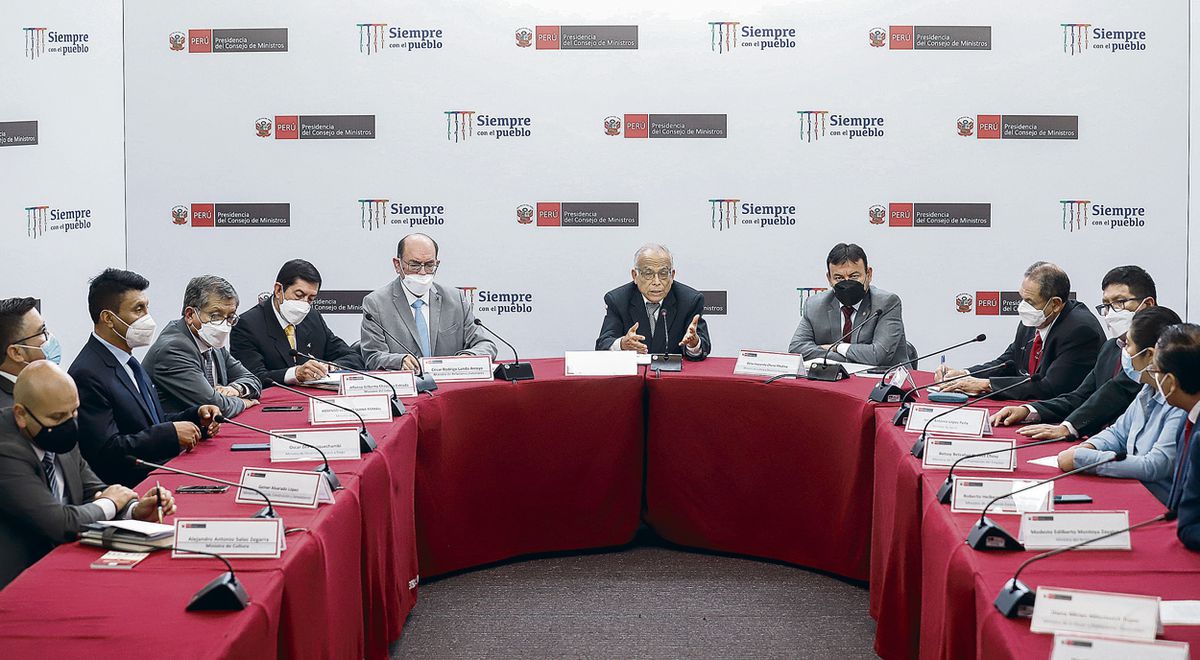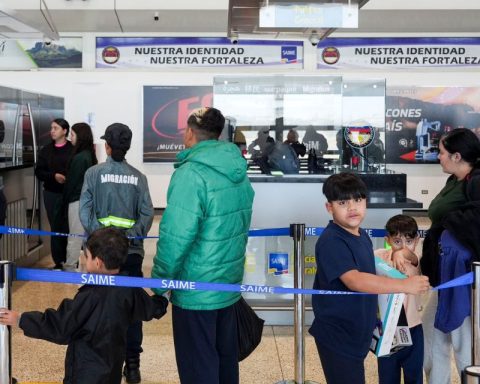There were very few objections within the ministerial cabinet at the time of approving the sending of the bill to Congress that proposes to consult the citizens if they agree with a constituent assembly that drafts a new Constitution.
From the Executive it is pointed out that the one who showed reservations was the Minister of Economy and Finance, Oscar Graham.
In fact, this version has been corroborated by the head of Energy and Mines, Carlos Palacios. In statements to RPP, he said that his MEF colleague voted abstention.
YOU CAN SEE: Who wins or loses with the referendum project presented by the Executive to Congress?
“We all agreed, except one of which there was an abstention. It was the Economics (Óscar Graham)”, Palacios pointed out and added that he left before the end of the meeting due to agenda reasons, so he avoided giving more details in this regard.
“I left quickly because I was with the ticket. I can only tell you that when there was a vote, one abstained and then it was approved. I went on a trip and that is what I can tell you so far,” Palacios said.
Along the same lines, Defense Minister José Luis Gavidia pointed out that Graham chose to abstain.
YOU CAN SEE: Flor Pablo against a new Constitution: “It is time to propose early elections”
“We are in a democratic environment. The vote was practically unanimous, undoubtedly any minister has the possibility of abstaining or not”, Gavidia commented.
There are journalistic versions that indicate that Foreign Minister César Landa would have preferred to show his disagreement with the project. The same with the Minister of Justice, Félix Chero. However, neither Palacios nor Gavidia mentioned them.
Óscar Graham, Minister of Economy and Finance, was the only one of the ministers who did not speak in favor of the bill on the constituent assembly. Photo: MEF
“In this case it was Executive power the one that has presented this initiative so that the Congress evaluates it, discusses it, debates it and they make the best decision. We hope that the debate is responsible, is high, and that they really listen to the population, “said Gavidia.
YOU CAN SEE: Modesto Montoya: Peru is semi-devastated as a result of the constitution with which we live
It should be remembered that on Monday, in an extraordinary session, the The Council of Ministers approved the constitutional reform initiative with the proposal for consultation on the constituent assembly, in compliance with what was announced in Cusco by President Pedro Castillo.
The decision on its approval rests exclusively with the Congress and, from now on, the majority of the benches have spoken out against it. The initiative will have to be seen, first, in the Constitution Commission, which is chaired by Patricia Juárez, from Fuerza Popular.
Moreover, one option is that the project does not even reach the necessary votes in that working group to go to plenary.
YOU CAN SEE: They denounce plagiarism in the Government project on a referendum for a new Constitution
The executive proposes incorporate a constitutional article to establish a third mechanism for the total reform of the current charter: a referendum. Today, article 206 establishes two alternatives for changing the Constitution: through approval with 87 votes in two consecutive legislatures or approval with 66 votes and ratification via referendum.
At the moment it is unlikely that the government’s idea – raised in the midst of a political and economic crisis – will have sufficient support in Parliament.
The proposal of a new Constitution to replace the current one of 1993 has been a campaign promise of Pedro Castillo, but when it came to the Government it was left aside.
YOU CAN SEE: Alva on the referendum for a new constitution: “This bill is not going to be approved”
In an evident attempt to recover the political initiative in the midst of the strong discredit facing the president, the subject was taken up again.
Clue
Vraem. Today the VII Council of Decentralized Ministers will be held in the district of Samugari, Ayacucho.
Copy and paste. The lawyer and teacher Diego Pomareda denounced that the PL on AC includes exact extracts from an academic article of its authorship.


















